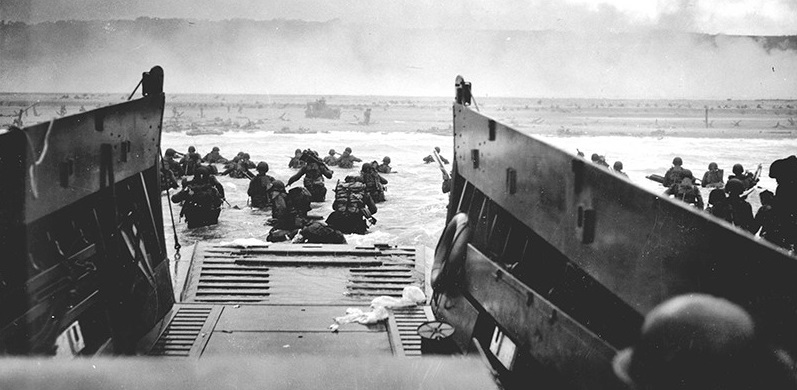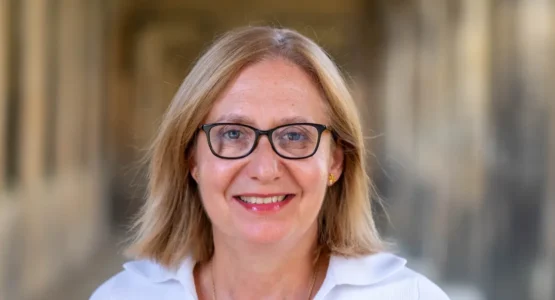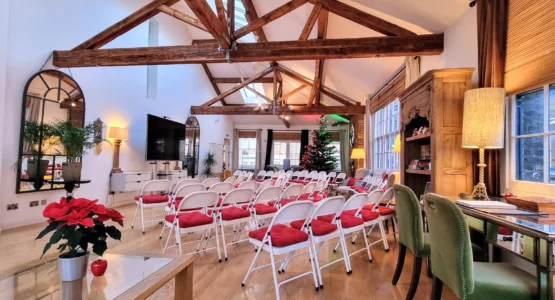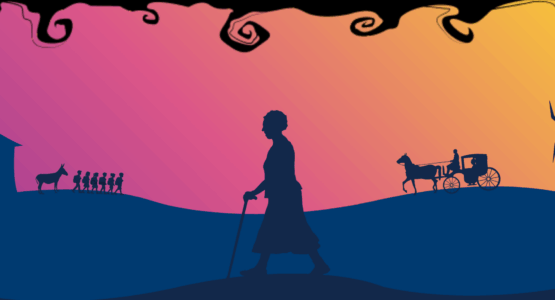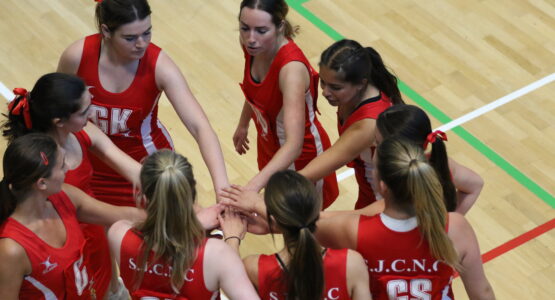On 5 and 6 June 2024, a series of major commemorations in the UK and France, marking the 80th anniversary of the Normandy Landings in June 1944, will honour the brave personnel who risked their lives for freedom and peace. This well-told story never ceases to amaze and humble those of later generations. A less well-known aspect is the role played by St John’s College in the planning of the campaign.
In late March 1944 the Senior Combination Room was the scene of a highly secret operation to plan the D-Day Landings. You can read the full story here.
Top-secret war planning aside, E A Benions, Master of St John’s College during the War, later reflected on ‘how regularly college life (had) functioned while hostilities had lasted. The undergraduate took life as he found it and made it worthwhile. To his ordinary academic work were added military duties in the Senior Training Corps (STC) and fire watching at night.’
One young undergraduate Donald Rushton (1942), who graduated in 1945 with a degree in Mechanical Sciences, had direct experience of College life during wartime. We asked him some questions about this unusual time at St John’s.
Tell us about coming to St John’s
I entered College at the age of 18 years and 5 months (in 1939 under-twenties were exempt from call up), having taken the Mechanical Sciences entrance exam and the ‘little go’ Latin exam (contemporary university slang for the preliminary examination for a degree) the previous June, with a two-year state bursary to read Mechanical Sciences.
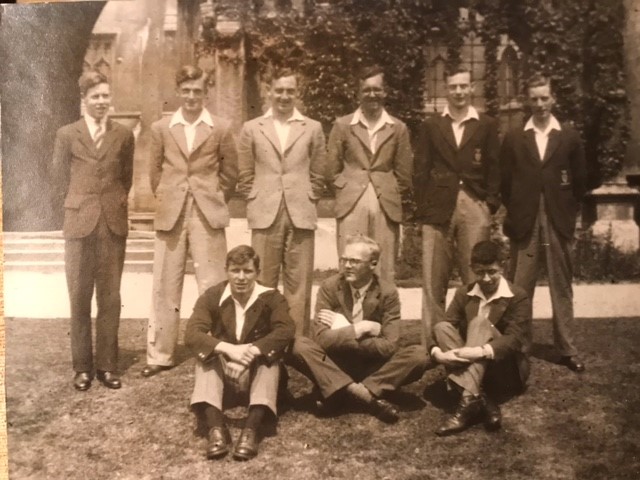
Back row left to right: Ian Davies (1942), Arthur Hurrell (1942), Arthur Forster (1942), Ken Raby (1942), Alec Mitchell (1942) and Donald Rushton (1942); Front row left to right: Doug Morton (1942), Bill Jollans (1942) and David Lewis (1942).
How did it feel being at St John’s during the War?
I was allocated E7 Second Court, with a small window facing the Master’s garden. It had a coal fireplace. We had to carry our own rationed coal up from the ground floor and laid our own fires with newspaper, sticks and coal. There were no ‘gyps’ (manservants) as they had been called up, but I had a female ‘bedder’ (bedmaker).
All meals were taken in Hall. Chapel Court was turned into a vegetable patch and rationing was applied to all members of the College. We gave our ration books in and they were returned to us at the end of term. Bangers and mash frequently appeared, as did dried egg, and later spam and baked beans. We never went hungry.
My Tutor, Mr S J Bailey, was a lawyer, and my Director of Studies was Mr H G Rhoden, an engineer. A large number of Fellows had departed for war service. Lectures were in the School of Engineering, so bicycles were essential.
However spartan, life in Cambridge was fun combined with hard work. Sport continued. Undergraduate pranks abounded. The College gates closed at 10pm and women had to be out by then. For those who needed it, one way to climb into College in the blackout (which was strictly observed in College) was by way of a rope ladder lowered on the appropriate signal from a colleague’s gyp room window facing the street.
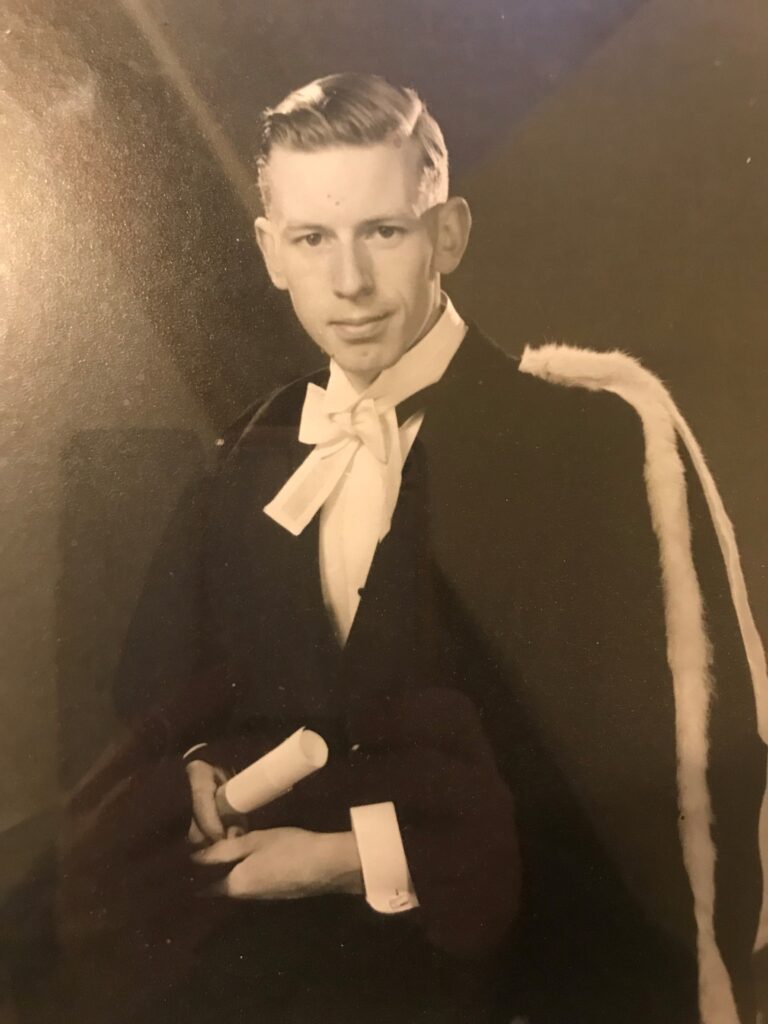
I quickly made friends with other engineers and we spent evenings in each other’s rooms, usually playing mental games. It was not our custom to visit pubs. Some of us were required to spend Sunday afternoons with the Senior Cadet Corps, where I learned to handle military radios.
Were you aware of any activities that brought the War into the heart of the College?
The blackout was intense throughout the War. The Bridge of Sighs and New Court were out of bounds to members of the College. Fears of invasion led to the College closing to the public and RAF sentries administered controlled access to points west of the Bridge of Sighs by a system of passes. We knew that the RAF were running short courses (a school contemporary of mine was there). Hence we accepted that senior RAF officers frequented the College. 125 RAF cadets were billeted in New Court and members of the Allied forces regularly dined in Hall.
We had no reason to suspect the military planning for D-Day was happening in the Senior Combination Room and were amazed when it was eventually revealed in 1974!
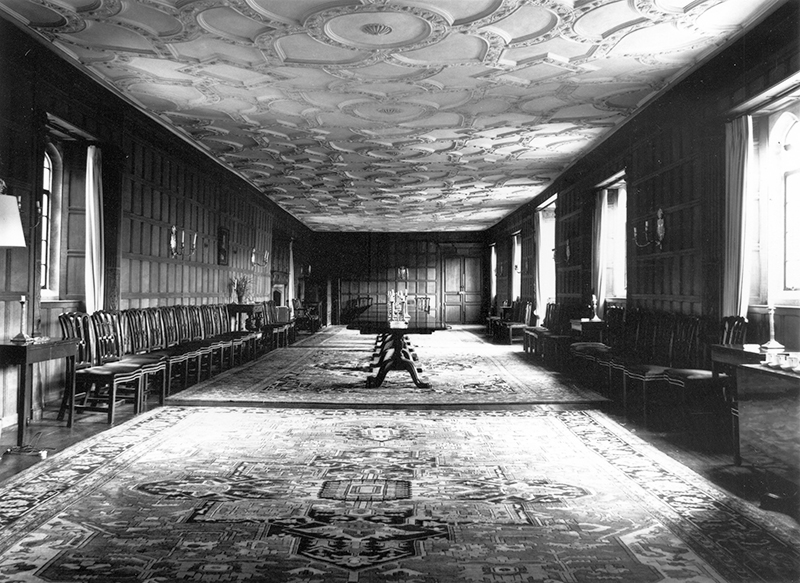
In my second year, I was allocated E6 North Court, which had central heating and a window overlooking Chapel Court. It was in this room that I heard that D-Day had happened in June 1944.
Were you still in residence on VE Day in 1945?
Shortly after D-Day the selection board announced that we would serve two years of industrial service in lieu of military service. As I had worked at the De Havilland aircraft company during the previous long vacation, I was directed there. Thus, I was in Hatfield on VE Day in May 1945.
Donald went on to have a distinguished career in engineering, and celebrated his 100th birthday on 2 April 2024. On behalf of all Johnians, we wish him many congratulations on reaching this landmark birthday!
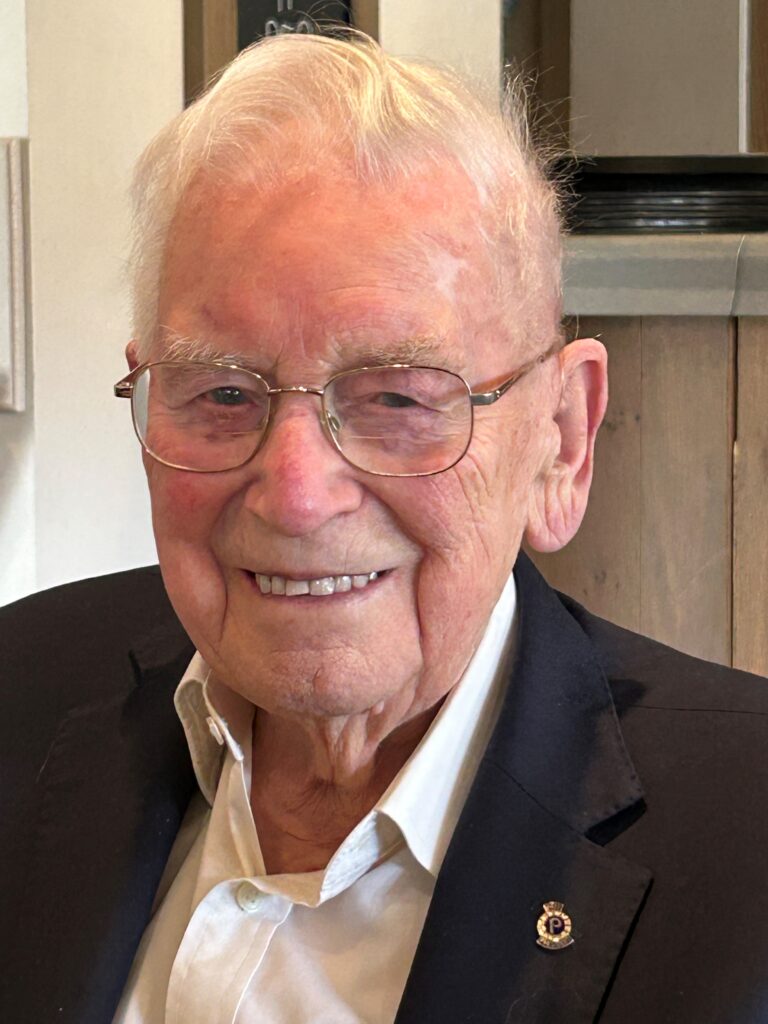
A short film offering an insight into life in Cambridge in 1945 can be viewed online here.
Cambridge (1945) from British Council Film on Vimeo.

